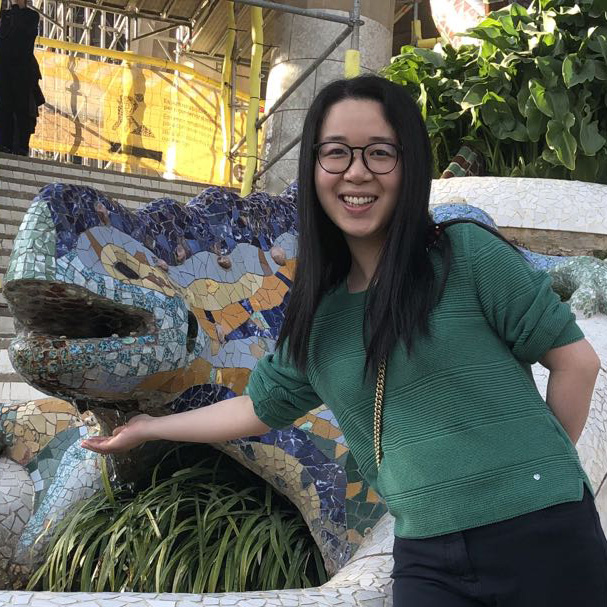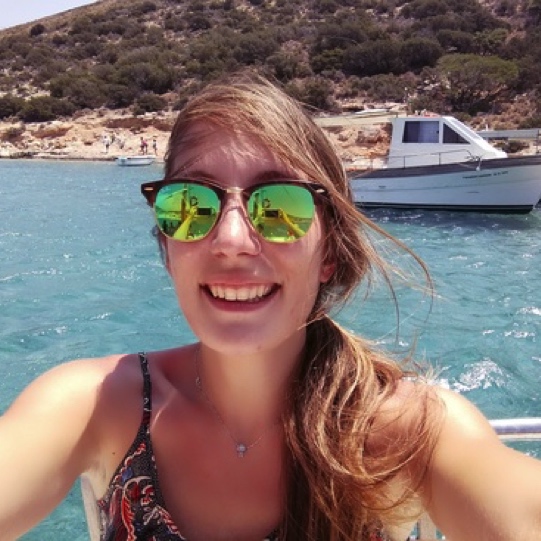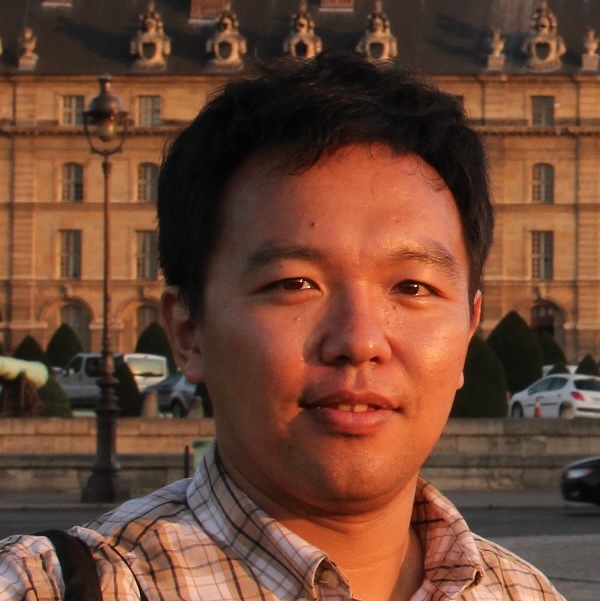Overview
The goal of this workshop is to bring together researchers and practitioners interested in modeling, reconstructing, or generating (dynamic) 3D objects/scenes in challenging, in-the-wild settings. With recent advances in 3D learning, the widespread availability of 2D and 3D visual data, and the predominance of image/video generative models, we believe now is a pivotal moment to tackle these challenges and make 3D vision more robust, accessible, and cost-effective. By fostering communication and highlighting important work in these areas, we hope to inspire new research topics and breakthroughs. Additionally, given recent advances in video generative models and dynamics modeling, we strongly encourage contributions not only from standard 3D topics but also from broader 4D-related directions.
Invited Speakers

Anpei Chen
Westlake University
Anpei Chen is an Assistant Professor and the head of the Inception3D Lab at Westlake University. His research lies at the intersection of computer graphics and computer vision, focusing on visual representation, content generation, and spatial intelligence, with the goal of efficiently understanding 3D from 2D observations.
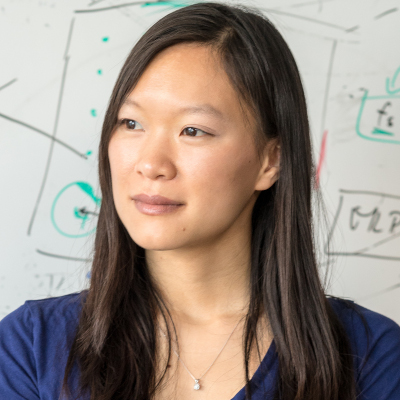
Angela Dai
Technical University of Munich
Angela Dai is an Associate Professor at the Technical University of Munich where she leads the 3D AI Lab. Her research focuses on understanding how real-world 3D scenes around us can be modeled and semantically understood. Her research has been recognized through an ECVA Young Researcher Award, ERC Starting Grant, Eurographics Young Researcher Award, German Pattern Recognition Award, Google Research Scholar Award, and an ACM SIGGRAPH Outstanding Doctoral Dissertation Honorable Mention.
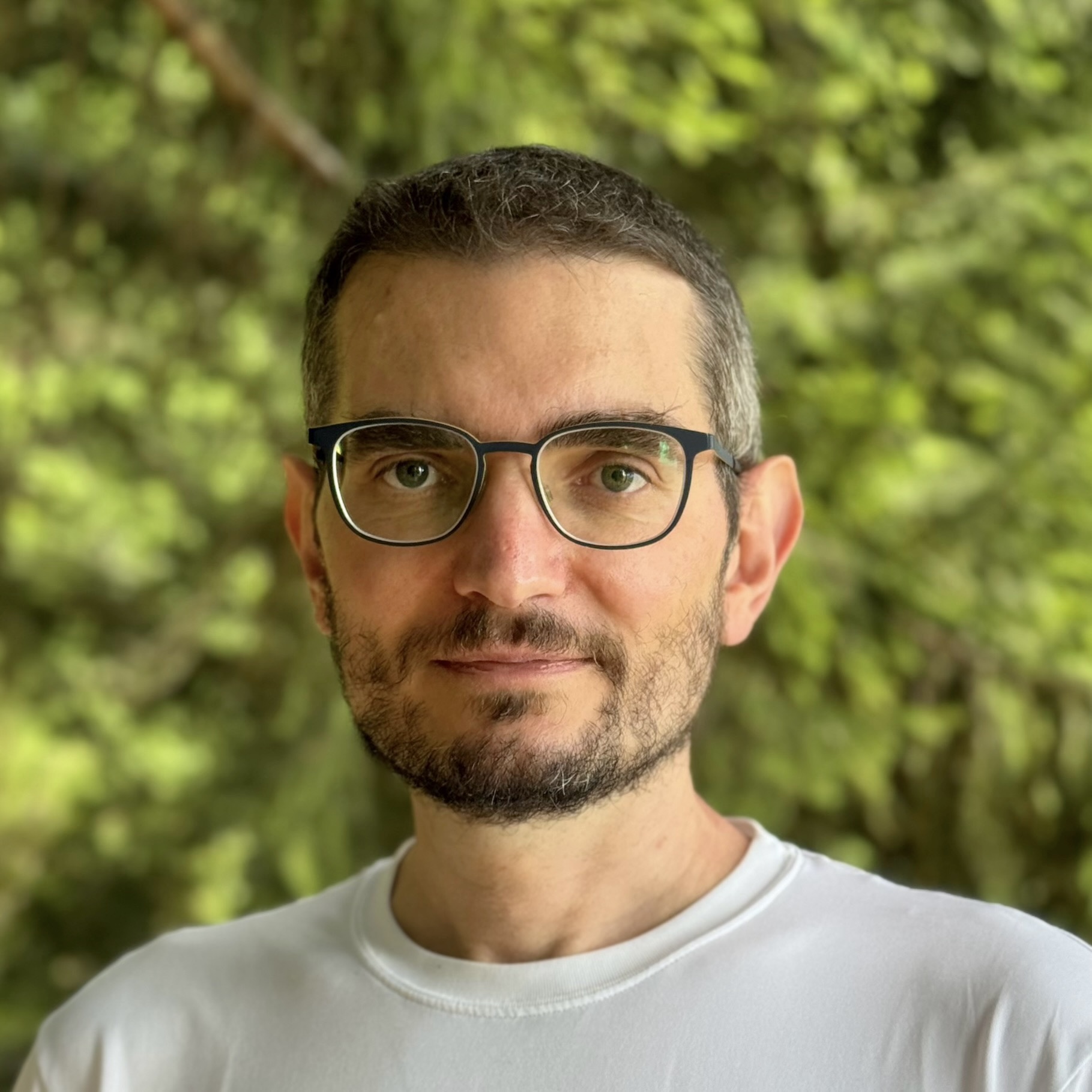
Andrea Vedaldi
University of Oxford
Andrea Vedaldi is a Professor of Computer Vision and Machine Learning and a co-lead of the VGG group at the Engineering Science department of the University of Oxford. His research focuses on developing computer vision and machine learning methods to understand the content of images and videos automatically, with little to no manual supervision, in terms of semantics and 3D geometry.
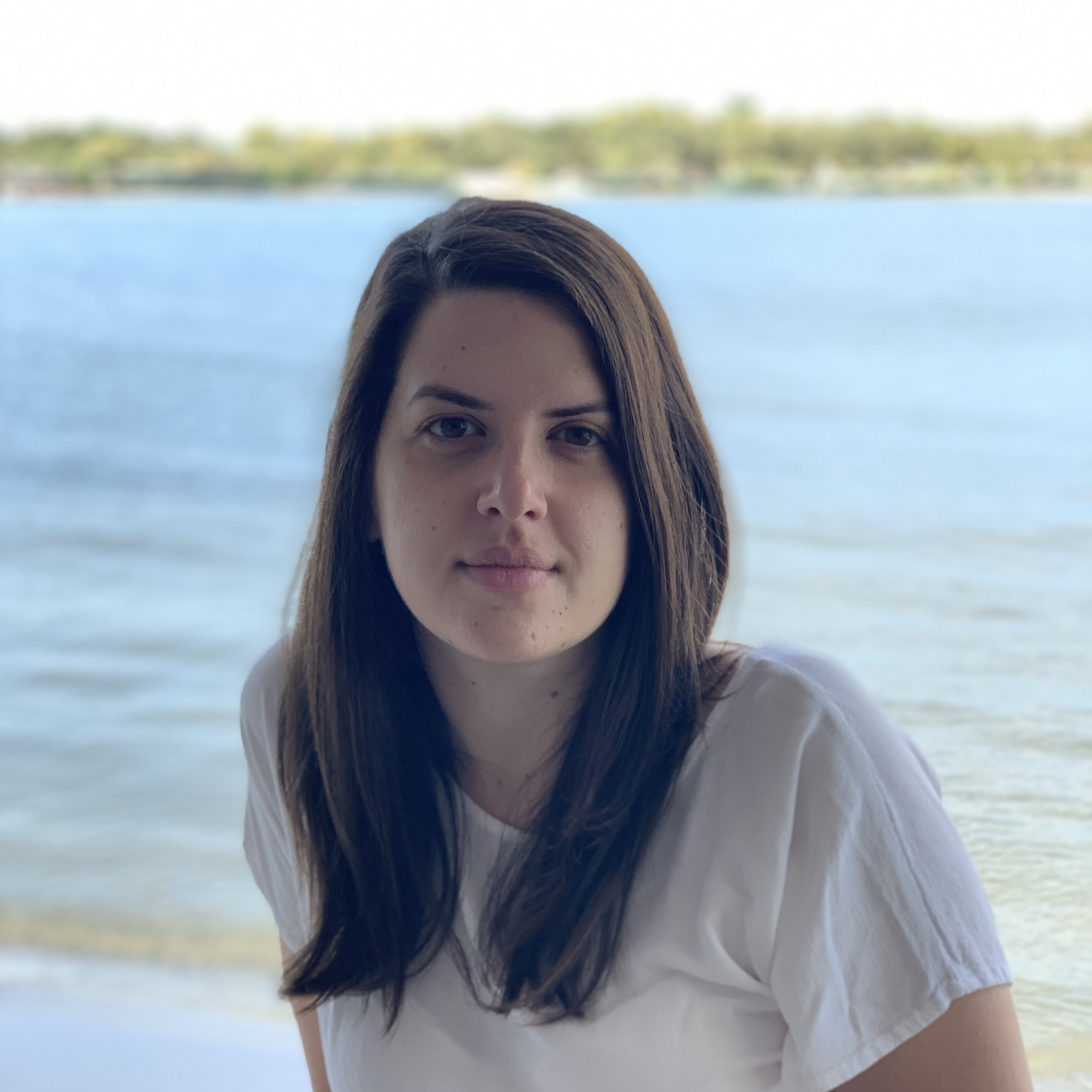
Georgia Gkioxari
Caltech
Georgia Gkioxari is an Assistant Professor at Caltech and a Hurt Scholar. The goal of her work is to design advanced visual perception models that extend the boundaries of current visual capabilities. Her research explores new spatial tasks and visual representations that transform images into 2D and 3D outputs.

Jun Gao
University of Michigan, NVIDIA
Jun Gao is an Assistant Professor at the University of Michigan as well as a senior research scientist at NVIDIA. His research stays at the intersection of 3D computer vision, computer graphics and generative models. He is interested in developing controllable generative AI models to create photorealitic, diverse and interactive virtual environments.

Noah Snavely
Cornell Tech, Google DeepMind
Noah Snavely is a Professor of Computer Science at Cornell Tech, specializing in computer vision and computer graphics, and a member of the Cornell Graphics and Vision Group. He also works at Google Research in NYC. His research focuses on computer vision and graphics, particularly on 3D understanding and depiction of scenes from images.

Qianqian Wang
Harvard University
Qianqian Wang is an incoming Assistant Professor at Harvard University and the Kempner Institute. Her research focuses on understanding and modeling the dynamic 3D world from everyday images and videos. Her long-term goal is to build intelligent systems that can perceive, understand and continually learn from the ever-changing physical world.
Spotlight Speakers

Hanwen Jiang
Adobe Research
Hanwen Jiang is a Research Scientist at Adobe Research. He is interested in building scalable learning paradigms and models for spatially grounded intelligence.

Chih-Hao Lin
UIUC
Chih-Hao Lin is a PhD student at the University of Illinois Urbana-Champaign. His research interests lie at the intersection of 3D vision, neural rendering, and simulation.
Schedule
| 09:00 - 09:10 | Opening Remarks | |
| 09:10 - 09:45 | Invited Talk 1 | Qianqian Wang (Harvard University) |
| 09:45 - 10:20 | Invited Talk 2 | Anpei Chen (Westlake University) |
| 10:20 - 11:00 | Coffee Break + Poster Session | |
| 11:00 - 11:15 | Spotlight Presentation 1 | Hanwen Jiang (Adobe Research) |
| 11:15 - 11:50 | Invited Talk 3 | Noah Snavely (Cornell Tech & Google DeepMind) |
| 11:50 - 13:30 | Lunch Break | |
| 13:30 - 14:05 | Invited Talk 4 | Andrea Vedaldi (University of Oxford) |
| 14:05 - 14:40 | Invited Talk 5 | Angela Dai (Technical University of Munich) |
| 14:40 - 14:55 | Spotlight Presentation 2 | Chih-Hao Lin (UIUC) |
| 14:55 - 15:15 | Coffee Break | |
| 15:15 - 15:50 | Invited Talk 6 | Jun Gao (University of Michigan & NVIDIA) |
| 15:50 - 16:25 | Invited Talk 7 | Georgia Gkioxari (Caltech) |
| 16:25 - 16:35 | Closing Remarks |
Related Workshops
- 3D Scene Understanding Workshop covers the broad scope of 3D scene understanding, while our proposed workshop dive deeper into the challenges and methodologies of 3D modeling and reasoning under in-the-wild, challenging, and sometimes extreme setup.
- Long-Term Visual Localization under Changing Conditions focuses on the task of visual localization. Our workshop takes a broader lens, covering the challenges and applications across various 3D computer vision tasks.
- Image Matching: Local Features & Beyond focuses specifically on the task of cross-view feature matching. While 3D modeling and alignment is one of our topics of interest, our focus is broader. Additionally, instead of the traditional, classic setup, we are interested in challenging cases such as sparse viewpoints with small overlaps.
- Learning 3D with Multi-View Supervision explores multi-view cues for 3D deep learning for various tasks, including recognition, detection, segmentation, and generation. While our workshop also concerns these techniques and tasks, we focus more on how to generalize these algorithms to challenging and extreme real-world setup.
- Workshop on Computer Vision in the Wild covers a wide range of topics in computer vision, while we focus on studying the challenges and impact of existing algorithms and systems through the lens of 3D.
Call For Paper
We accept either 4-page extended abstracts or 8-page full papers submissions, excluding reference. The workshop papers are non-archival and we welcome submissions that were already submitted/accepted to other venues or the ICCV main conference. All submissions should follow the ICCV 2025 author guidelines.- Submission Portal: OpenReview
- Paper Submission Deadline: September 1, 2025, 23:59:59 PST
- Notification to Authors: September 12, 2025
- Camera-ready submission: September 19, 2025
Topics of Interest
- Data and Modality: What type of data provides the most useful information for (dynamic) 3D modeling? Do we need explicit 3D data or is video data sufficient? What is currently lacking in this area? What datasets and benchmarks are crucial to validate the effectiveness of 3D/4D algorithms in the wild?
- Alignment: How can we align observations that exhibit significant variations in appearance, motion (articulation), lighting, contents, and viewpoints? How can we register images or videos with little or no overlap?
- Modeling: How can we construct accurate 3D models from sparse, noisy, incomplete, or dynamic observations?
- Representation: What are the most suitable representations for 3D modeling and reasoning? Do we truly need explicit 3D representations, or could view synthesis and video generative models be sufficient?
- Knowledge and Reasoning: How can we represent, learn, and encode commonsense knowledge of 3D objects and scenes -- such as part structures, articulations, physical stability, and affordances -- and leverage it for various 3D tasks, including reasoning, dynamic modeling, reconstruction, and generation?
- 4D (Dynamic 3D): What is the best way to represent and model the dynamic 3D world? What priors are critical for its success? How can we improve 3D understanding via 4D modeling?
- Risks and ethical considerations: How can we mitigate the risks of these robust 3D modeling and reasoning techniques? How do we address relevant ethical questions, such as invasion of privacy and spreading misinformation.
- Applications: What new applications can be unlocked by developing more robust 3D algorithms, and what modifications are needed? For example, how can we adapt existing (dynamic) 3D modeling techniques to better support robots operating in challenging environments? How can we leverage 3D priors learned from images to enable photorealistic content creation? How can we build on video foundation models to enhance our 3D understanding of the world? Are there other exciting applications for in-the-wild 3D modeling for domains such as construction, agriculture, and remote sensing?
Accepted Papers / Extended Abstracts
- Avatar++: Fast and Pose-Controllable 3D Human Avatar Generation from a Single Image
- Refinement of Monocular Depth Maps via Multi-View Differentiable Rendering
- Beyond the Frame: Generating 360 Panoramic Videos from Perspective Videos
- Reasoning3D - Grounding and Reasoning in 3D: Fine-Grained Zero-Shot Open-Vocabulary 3D Reasoning Part Segmentation via Large Vision-Language Models
- Leveraging 2D Priors and SDF Guidance for Dynamic Urban Scene Rendering
- DeGauss: Dynamic-Static Decomposition with Gaussian Splatting for Distractor-free 3D Reconstruction
- Gradient Distance Function
- Dr. Splat: Directly Referring 3D Gaussian Splatting via Direct Language Embedding Registration
- PhysRig: Differentiable Physics-Based Skinning and Rigging Framework for Realistic Articulated Object Modeling
- Learning to Generate 4D LiDAR Sequences
- Towards Understanding Camera Motions in Any Video
- Generative Multiview Relighting for 3D Reconstruction under Extreme Illumination Variation
- REVIVE3D: REtrieval-based Volumetric Infusion via Visual Editing
- Self-Evolving Neural Radiance Fields
- SpatialTrackerV2: 3D Point Tracking Made Easy
- DRAWER: Digital Reconstruction and Articulation With Environment Realism
- Uncertainty-Aware Diffusion-Guided Refinement of 3D Scenes
- MapAnything: Universal Feed-Forward Metric 3D Reconstruction
- Generative Blocks World: Moving Things Around in Pictures
- Scaling Transformer-Based Novel View Synthesis with Models Token Disentanglement and Synthetic Data
- Controllable Weather Synthesis and Removal with Video Diffusion Models
- InvRGB+L: Inverse Rendering of Complex Scenes with Unified Color and LiDAR Reflectance Modeling
- Any4D: Towards Unified Feed-Forward Metric 4D Reconstruction
- C³Editor: Achieving Controllable Consistency in 2D Model for 3D Editing
- HoloScene: Simulation‑Ready Interactive 3D Worlds from a Single Video
- HUMOTO: A 4D Dataset of Mocap Human Object Interactions
- Re-Nerfing: Improving Novel View Synthesis through Novel View Synthesis
- FiffDepth: Feed-forward Transformation of Diffusion-Based Generators for Detailed Depth Estimation
- LongSplat: Robust Unposed 3D Gaussian Splatting for Casual Long Videos
- Visibility-Aware Language Aggregation for Open-Vocabulary Segmentation in 3D Gaussian Splatting
- Dynamic HDR Radiance Fields via Neural Scene Flow
- FlowR: Flowing from Sparse to Dense 3D Reconstructions
- PartSLIP++: Enhancing Low-Shot 3D Part Segmentation via Multi-View Instance Segmentation and Maximum Likelihood Estimation
- HoliGS: Holistic Gaussian Splatting for Embodied View Synthesis
- Self-Supervised Collaborative Distillation: Enhancing Lighting Robustness and 3D Awareness
- Fast and Precise Multimodal Spatiotemporal Calibration via Periodic-Activated 2D Gaussian Splatting
- PhysTwin: Physics-Informed Reconstruction and Simulation of Deformable Objects from Videos
- CRISP: Contact-guided Real2Sim from Monocular Video with Planar Scene Primitives





